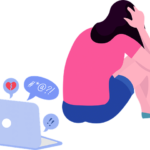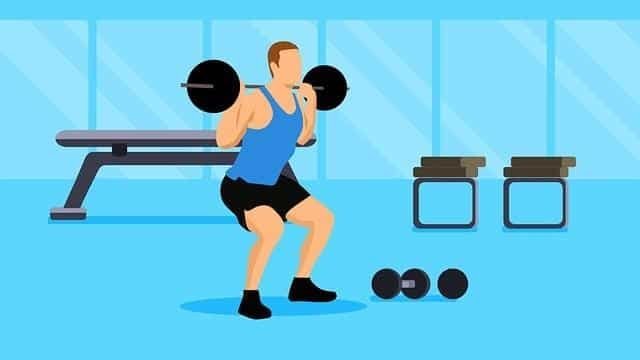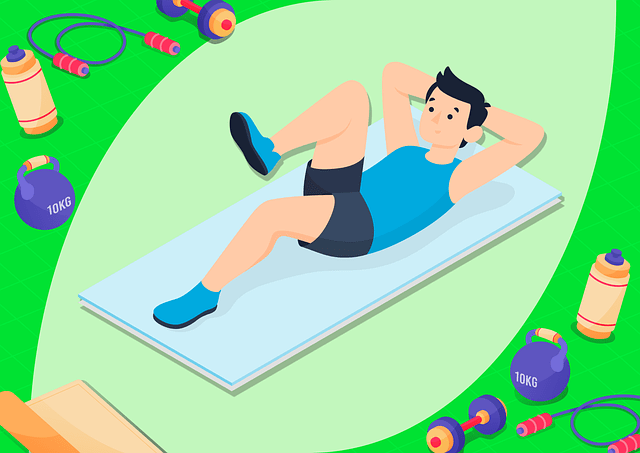Depression is a common mental health disorder that affects millions of people worldwide. It can significantly impact a person’s quality of life, relationships, and work productivity. However, many individuals are not aware of the symptoms of depression or may not seek help due to stigma or fear of being judged. This article aims to educate readers about the seven signs that indicate they may have depression and encourage them to seek professional help.
Introduction
It is a serious mental health condition that affects many people worldwide. According to the World Health Organization (WHO), over 264 million people suffer from depression globally. It is essential to understand the symptoms of depression to seek help and support.
What is Depression?
It is a mental health disorder that affects a person’s mood, thoughts, and behavior. It is characterized by persistent feelings of sadness, hopelessness, and worthlessness that interfere with daily activities. It can impact a person’s physical health, relationships, and work productivity.
The Seven Signs of Depression
Depression manifest in many forms and its symptoms also varies from person to person. Here are the seven common signs that indicate a person may have depression:
- Feelings of sadness or hopelessness
- Loss of interest in activities
- Changes in appetite or weight
- Excessive or insufficient sleep.
- Fatigue or lack of energy
- Difficulty Concentrating or Making Decisions
- Thoughts of suicide or self-harm
Let’s discus each sign in little detail so we can understand it properly.
Feelings of sadness or hopelessness
Persistent feelings of sadness, anxiety, emptiness, or hopelessness are the hallmark symptoms of depression. A depressed person may feel overwhelmed by their emotions and find it challenging to feel happy or enjoy life.
Loss of interest in activities
A sad individual loses interest in past passions, including hobbies, sports, and interacting with family and friends. They may also withdraw from activities that require effort, such as work or school.
Changes in appetite or weight
It can impact a person’s appetite and cause significant changes in their weight. A person with depression may lose or gain weight without intending to do so.
Excessive or insufficient sleep
It can disrupt a person’s sleep pattern and cause them to sleep too much or too little. They may have trouble falling asleep, staying asleep, or waking up early.
Fatigue or lack of energy
It can cause a person to feel tired or exhausted, even after getting enough sleep. They may feel drained or lack the motivation to perform daily activities.
Difficulty Concentrating or Making Decisions
A person’s ability to pay attention, think clearly, and make decisions may all be affected by it. They may find it challenging to concentrate on work, school, or other tasks that require mental effort.
Thoughts of suicide or self-harm
Suicidal or self-destructive ideas are common in people who are depressed. If you or someone you love is thinking about suicide, you must seek help immediately.
Common Types
Here are some common types of depression that commonly affect a person’s mental health.
Major depressive disorder
It is a severe form of depression that lasts for at least two weeks. It can impact a person’s daily life and cause significant distress.
Persistent depressive disorder
It is a type of depression that lasts for two years or longer. It is characterized by persistent feelings of sadness, hopelessness, and low self-esteem.
Seasonal affective disorder
Seasonal affective disorder is a type of depression that occurs during the winter months when there is less sunlight. It can cause feelings of sadness, fatigue, and weight gain.
Postpartum depression
It is a type of depression that occurs after giving birth. It can cause feelings of sadness, anxiety, and difficulty bonding with the baby.
Bipolar disorder
Bipolar disorder is a mental health condition that causes extreme mood swings, including episodes of depression and mania.
Risk Factors of Depression
While anyone can develop it, certain factors may increase a person’s risk, including:
- Positive Family history
- Trauma or stress
- Chronic illness or pain
- Substance abuse
- Hormonal changes
- Lack of social support
How to Seek Help
Here are some ways to get help:
- Talk to your doctor or a mental health professional
- Reach out to a support group or hotline
- Practice self-care, such as exercise, healthy eating, and stress management
- Consider medication or therapy
Remember, depression is treatable, and seeking help is a sign of strength.
How to Diagnose Depression: What to Expect
If you are experiencing symptoms of depression, it is important to seek help from a mental health professional. A diagnosis of depression typically involves a mental health assessment, which may include a physical exam, lab tests, and a psychological evaluation.
The mental health professional will ask about your symptoms, medical history, and any medications you are taking. They may also ask about your family history of mental illness and any recent life changes or stressful events.
Treatment option available
It is a treatable condition, and seeking help is essential to recovery. Treatment typically involves a combination of medication, therapy, and lifestyle changes. Medications may include antidepressants, mood stabilizers, or anti-anxiety medications.
Therapy can include talk therapy, cognitive-behavioral therapy, or other forms of psychotherapy. Lifestyle changes may include exercise, a healthy diet, and stress-management techniques.
Coping Strategies: Self-Care and Support
In addition to seeking professional help, there are also several coping strategies you can use to manage it. These strategies include self-care, support from loved ones, and stress-management techniques.
Self-care strategies may include exercise, a healthy diet, getting enough sleep, and engaging in activities you enjoy. Support from loved ones can also be helpful, whether it is through talking about your feelings, seeking emotional support, or engaging in social activities.
Stress-management techniques may include mindfulness meditation, deep breathing, or progressive muscle relaxation.
When to Seek Emergency Help: Managing a Crisis
If you are experiencing thoughts of suicide or self-harm, it is important to seek emergency help immediately. You can contact a crisis hotline or go to your nearest emergency room. It is essential to take any thoughts of suicide or self-harm seriously and to seek help as soon as possible.
Conclusion
Depression is a common mental health disorder that can significantly impact a person’s life. By understanding the symptoms and seeking help, individuals can manage their condition and improve their overall well-being. Remember to seek help if you or someone you know is experiencing symptoms of depression.
FAQs
Can depression go away on its own?
It can improve over time, but it is essential to seek help to manage symptoms and prevent future episodes.
Can exercise help with depression?
Yes, exercise has been shown to improve symptoms and boost mood.
How it is diagnosed?
It is typically diagnosed through a mental health assessment, which may include a physical exam, lab tests, and a psychological evaluation. The mental health professional will ask about your symptoms, medical history, and any medications you are taking.
Can it be cured?
Depression cannot be cured, but it can be effectively treated. With the right treatment, many people with depression are able to manage their symptoms and lead fulfilling lives.
What are the most effective treatments options?
The most effective treatments typically involve a combination of medication, therapy, and lifestyle changes. Antidepressant medications, such as selective serotonin reuptake inhibitors (SSRIs), are often prescribed to manage symptoms of depression. Therapy, such as cognitive-behavioral therapy (CBT), can also be helpful in teaching coping skills and strategies for managing it. Lifestyle changes, such as exercise and stress-management techniques, can also be effective in managing symptoms.
Can medication help with it?
Yes, medication can be effective in treating, but it should be used in conjunction with therapy and lifestyle changes.
Is depression a sign of weakness?
No, it is not a sign of weakness. It is a mental health disorder that can impact anyone, regardless of strength or resilience.
How can I support a loved one with depression?
If your loved one or any other person is under depression, it is important to offer support and encourage them to consult a health care provider. You can help them to find a mental health professional or accompany them to their appointments. You can also listen to their feelings without judgment, offer emotional support, and help them engage in self-care activities.
Can depression lead to other health problems?
Yes, it can result in other health problems like substance abuse, chronic pain, and other mental health disorders if left untreated for long time. Seeking treatment is important to prevent these complications.
How long does treatment for depression typically last?
The length of treatment mainly depending on the severity of symptoms and the individual’s response to treatment. Some people may only need a few months of treatment, while others may require longer treatment to manage their symptoms.














2 thoughts on “Top 7 Signs of Depression: How to Recognize and Seeking Help”